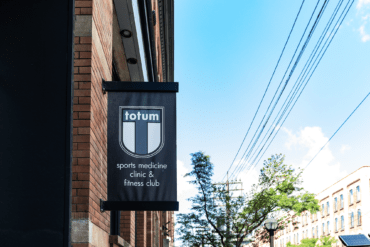How To Support Your Immune System
Tara Postnikoff, RNCP/ROHP, Holistic Nutritionist
Book An Appointment
The immune system is your body’s primary mechanism of defence, responsible for protecting you from potentially harmful invaders. It is made up of various cells, tissues, and substances including the skin barrier, red and white blood cells, microbiota, antibodies, and cytokines (cell signalling molecules). Your immune system consists of your innate immune system aka your first line of defence and the adaptive immune system which is highly specific against particular intruders. A dysfunction in the immune system may result in allergies, infections, tumors and autoimmunity.
A nutritious and balanced diet, good sleep, regular moderate exercise and stress mitigation techniques may help support your immune system.
Food First!
Vegetables and fruit offer a wide spectrum of antioxidants to support the immune system. These bioflavonoids, phytonutrients and other phytochemicals are unique and as such as eating a wide variety will over you the best support. They also contain vitamins and minerals needed to support a functioning immune system. Look for brightly coloured and dark green leafy vegetables as well as garlic, ginger and turmeric which have anti-microbial properties
Quality Protein
Protein contains the amino acid building blocks that our body uses to repair the body structure and create enzymes to carry out necessary functions. Deficiencies in protein intake can increase your risk for getting sick as these amino acids are the building blocks for creating anti-bodies to fight pathogens. Have protein with each meal, as well as post workout.
Vitamin D
Often only thought of in reference to bone health, this fat-soluble vitamin plays a vital role in our immune system and deficiency has been associated with increased risk of auto-immune conditions as well as protecting against respiratory tract infections. Found in salmon, mushrooms, fortified milk and milk substitutes, tuna and egg yolks. But supplementing with Vitamin D3 in the winter months can be helpful to get adequate levels. Best consumed with a meal / food containing food.
Vitamin C
Found in a wide variety of vegetables and fruits, Vitamin C plays an important role in immune function and fighting infections. Found in red bell peppers, strawberries, kiwi, oranges, dark cherries, kale, broccoli and Brussels sprouts. Aim to get a vitamin food with each meal.
Zinc
Helps strengthen immunity by supporting helper T cells. Specifically zinc lozenges as coronavirus hangs out in the larynx before heading down into the lungs. Zinc is found in seafood, clams, oysters, mussels, firm tofu, lentils, pumpkin seeds, yogurt, oats.
Support your gut microbiome
Supporting a healthy gut microbiome through healthy foods is a major way to support your immune system. You have 10x more bacteria cells in your body vs human cells. Fermented foods (sauerkraut, kefir, kimchi and unsweetened kombucha) and fibrous vegetables can help provide a good environment for positive bacteria to thrive. Oral probiotics of the right type and amount for the specific issue have been show to help maintain immune health.
Prioritize Sleep
During quality sleep our bodies repair and recovery. Sleep deprivation has been shown to reduce immunity and increase risk of infection. Stick to a sleep schedule where you get at least 7.5 hours of sleep. Avoid caffeine after noon and avoid screens for at least 1 hour prior to bed. Sleep in a cool dark room.
Reduce Excess
Excess sugar and alcohol stress the system and contain very few nutrients. Eating large quantities of processed food maybe open up room for nutrient deficiencies due to their lack of nutrients. Also beware of any foods that cause allergy or sensitivity in your body and reduce those.
Hydrate
Adequate hydration is key for a healthy body and allows for the transport of nutrients and elimination of waste products. Be mindful that if you have fever, vomiting or diarrhea you will be dehydrating yourself quickly.
Moderate Exercise
Regular exercise helps improve circulation which may allow cells and components of the immune system to move through the body to combat invaders. Too much intense exercise may weaken the immune system immediately following exercise so allow adequate time for recovery.
Relax & De-stress
Too much stress drives the production of cortisol which decreases cells in your immune system. Take a break from screens, read a book, listen to music, mediated or practice mindfulness, go for a walk, take a warm bath.
Looking to boost your immune system? Book a virtual treatment with our naturopath or nutritionists today!
By: Tara Postnikoff, RNCP/ROHP, Holistic Nutritionist










